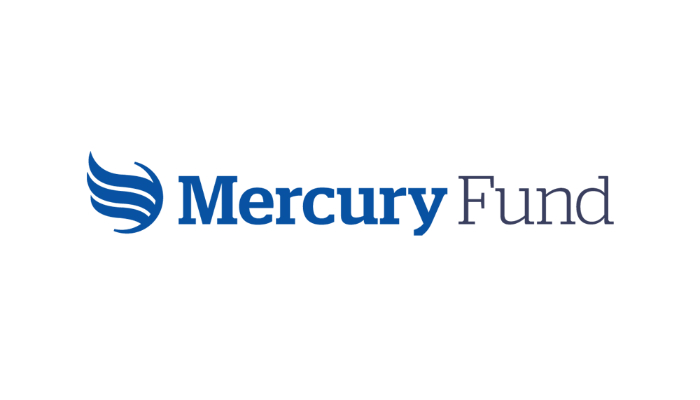 Blair Garrou is the co-founder of Mercury Fund, an early-stage venture capital firm based in Houston, Texas, with an active investment portfolio across the Midwest region. In January Mercury Fund will release its first annual report on the state of startups in the middle of the country. SPN caught up with Garrou over the phone to see what readers should expect in this year’s report.
Blair Garrou is the co-founder of Mercury Fund, an early-stage venture capital firm based in Houston, Texas, with an active investment portfolio across the Midwest region. In January Mercury Fund will release its first annual report on the state of startups in the middle of the country. SPN caught up with Garrou over the phone to see what readers should expect in this year’s report.
SPN: Tell us a little bit about this report that you’re going to release soon.
BG: We’re still looking to close a couple M&A deals, we’re actually going to release it around early to mid-January, but this is really the first I’m talking about these things. It’s going to be an outlook for startups in middle America.
The first major piece will be around what the implications for middle America around the unicorns’ bubble bursting. With the unicorns coming back to earth, what does that mean for the typical entrepreneur in the Southwest, the Great Plains, the Midwest, the Rocky Mountains? Most people look at these events as if the sky is falling, but most of us in the Middle are shielded from the ups and downs.
BECOME A SPONSOR
Join us in championing the narrative of success, resilience, and ingenuity that defines Nebraska’s startup community. Learn more »
I think the number one result of valuations coming back to normal is that corporations will go back to business from a corporate development perspective. Most M&A activity has been stifled because prices have been too high. The prices in the middle of the country are never too high, but the expectation is that VCs and investors will hold out for higher valuations because of all the coastal IPOs. M&A levels have been very low the last 3-4 years while IPOs have been much higher. So I expect companies to go into buying mode. In the middle of the country I think we’re going to see increased acquisition activity. We’re already seeing that in our portfolio from late Q3 to Q4.
SPN: It seems like many companies in the region that have been shielded from a lot of technology innovation are beginning to feel the need to take action. Do you think that’s going result in more M&A activity?
BG: I think it will. If you look at the rise of corporate VC groups, the first call to action is them saying, “Wow, look at what Nike is doing, look at what P&G is doing, look at what Kroger is going, should we be doing that, too?” And then with Techstars doing a lot of these managed corporate innovation programs, a lot of corporate development groups are asking if they should be doing that. Because it’s expensive to buy companies in order to innovate, so they’ve been looking for other ways to bring that innovation culture back. Now that prices are coming back down to earth, people will have to move.
If you look beyond just software, we think the Ag space has been heavily over-invested. There’s been a lot invested in Ag software. There’s been over 200 deals funded in the last 3-4 years. That is a ton of companies trying to solve a problem where there probably only needs to be 3 or 4 companies. Where we are more interested in is this convergence of cloud software and biotechnology–we call this “Automated Bio.” This theme is all around how you can do sequencing in Ag, crops, yield by leveraging cloud computing, Big Data, etc.
We’ve made a pretty interesting investment in a company out of the Danforth Plant Center in St. Louis called Benson Hills. They’ve worked on a way to perfect synthetic photosynthesis, so they are able to test and bring new crops to market in a fraction of the time it would take otherwise using cloud-based tech. I think a lot of companies in the Plains are going to be innovating using that technology.
SPN: One thing that often comes up in the Midwest are companies moving in and out of the region. What kind of trends have you seen in terms of geography?
BG: What we’re seeing is more anecdotal, and we haven’t seen the data yet, but what we’re hearing about are people moving back to Kansas City or back to St. Louis. Those are the two areas that SPN covers that we’re hearing the most from. I think St. Louis has really hit the mark in Ag at the Danforth and also with the work that Cultivation Capital and others are doing around T-REX.
If you look at the stats of investment, Missouri has three of the most active investors across the US in terms of number of investors into deals. I think that’s because of a lot of the state capital and seed capital around BioGenerator, the Missouri Technology Development Fund and Cultivation Capital, and the St. Louis Arch Grants. Our fund has made 4 St. Louis investments over the last 3 years. That’s as many as we’ve made in Austin.
“The bubble has already burst for unicorns”
SPN: What do you think St. Louis has done well that has made them successful so far?
BG: Most of these cities like St. Louis are not one trick ponies, especially if you have a strong university with a strong industry base. St. Louis has been very smart in developing startup organizations and allowing them to fund companies to get past that seed zone. BioGenerator has been doing some great work with science companies. Cultivation Capital has found a lot of high net worth individuals who have backed that team repeatedly and allowed them to make a ton of seed investments and help get things going. Repeatedly, I fly in and hear about great science deals. I get leads all the time. All the second order effects of having that much activity going on has been great for that city.
SPN: One thing that Midwest entrepreneurs often see as a challenge is our culture of humility and keeping quiet. Is that really important from a VC perspective?
BG: It’s double-edged sword. We like investing in the Midwest because of that entrepreneurial ethos of working hard, being efficient, heads down. That leads to a much lower failure rate for startups. Now, they aren’t going for the moonshots like a lot of companies on the coasts are, but they are still very sustainable, great businesses. You see this problem in Texas all the way to the Great Lakes [where] these companies are their own best kept secret. When corporations move into strategic acquisition mode, when people have those conversations, they talk about the companies they’ve heard about in earned media or found online. If companies aren’t talking about themselves and trying to play above their weight class, it’s really difficult for them to be exposed when the acquisition opportunities come.
SPN: If entrepreneurs are thinking about raising capital in the upcoming year, what should they be thinking about?
BG: Our prediction is that early stage valuations in the middle of the country are going to move to historic levels. What we saw over the last 12-18 months was that entrepreneurs were getting very good valuations on their convertible notes and caps, a lot that being led by being the only best deal angels could get into or by being on AngelList where angel investors were pricing based on their own region. We think all of that that is going to come down to normalcy. I don’t think it will lower by the 40-70% that we think is going to happen on the coast, but I think will come down by the 20-25% range.
Angel and seed investors are going to be more choosy about their deals. When these unicorns get revalued, it really has a sting on early stage investors. What happened in the Square IPO with the ratchet that took place, where the later stage investors had the effect of diluting the early stage investors. They people who get hurt there are the common holders, who are typically the founders and the employees, and then early stage investors. I think there will be a lot of early stage VCs that are going to rewrite their evaluations. They’re going to be a little more stingy in their investments.
SPN: Last time we talked, you discussed the current tech bubble. Do you think 2016 is when that bubble is going to burst?
BG: The bubble has already burst for unicorns. The IPO market is effectively shut, except for truly exceptional deals or deals that are willing to price in the reasonable range. I think you’ll see a lot of investors hold out because of the ratchets in place in the later stages of their unicorn round. People won’t want those ratchets to take place because what happened to Square will happen to them. I don’t think you’re going to see nearly as many IPOs.
Although people aren’t really talking about it, the air is coming out of the balloon. It’s coming back down to earth. Will it be a hard landing or a soft landing? I think for the middle of the country it’s a soft landing.
—
Ryan Pendell is the Managing Editor of Silicon Prairie News.




2 responses to “Mercury Fund’s Blair Garrou predicts a “soft landing” for Midwest venture capital as valuations fall”
Great insight here but I would love to hear what Mr. Garrou would have to say to the Andreessen Horowitz report that all but dismisses the tech bubble. In their report they reference the dot com bust in ’99 yielding $71B in investment ( VC + iPo) in tech companies in ’99 (10.8% of 1999 GDP) compared to just 48B(2.6% of today’s gdp) investment in tech companies in 2014.
Combine this with an Internet user base 7.5x that of 1999 and e-commerce revenues up 25x from 1999 – it seems intuitive that there are more high value companies in that arena.
This is distinct from ’99 because so many of these firms are private but trends point towards late stage high investment rounds as being substitutes for IPO’s.
I think this all makes sense together because the days of the weak founder and professional CEOs are gone. It’s understandable that founders want to maintain power and delay or avoid going public and having to manage expectations on the Street.
I’m no expert by any means but haw followed this topi for a time now and found the a16z argument very compelling.
I’d love to hear the counter arguments that I’m not aware of.
Sabastian Hunt
Year of the Startup
[…] https://spnewsnjt.wpengine.com/2015/12/mercury-funds-blair-garrou/ […]